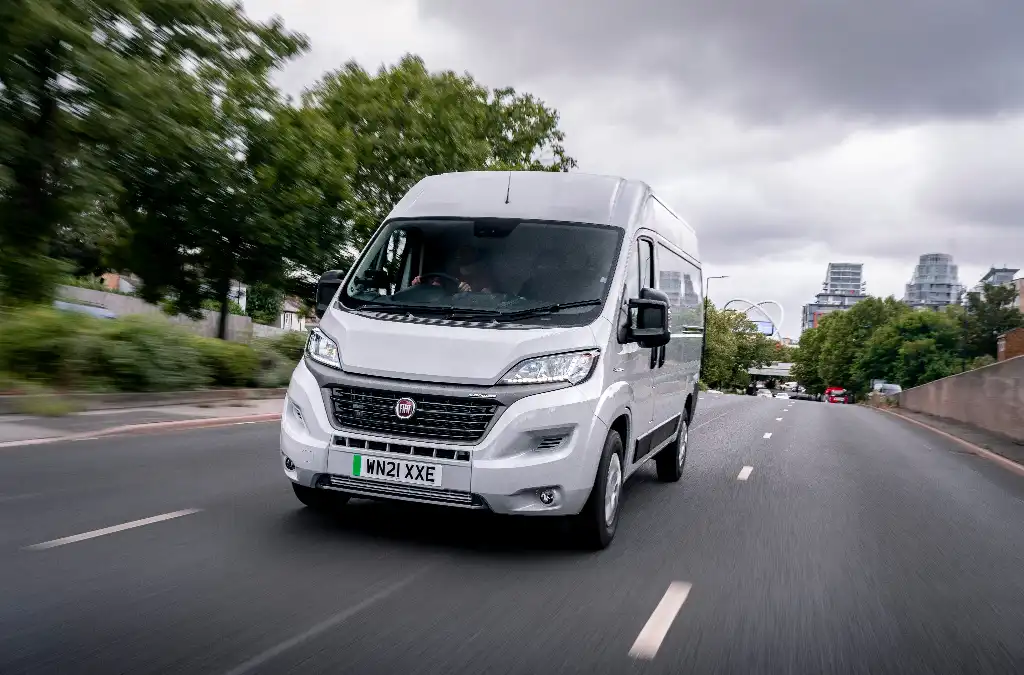
Do you find driving a van stressful? For many its a daily part of their lives but for novices behind the wheel it's a pretty duanting prospect. Does it really matter what van you are driving, and how does a diesel or a battery electric van alter your mood?
With fuel shortages and increasing costs adding to the anxiety levels of combustion engine van drivers, you’d be forgiven to think that the woes of an electric driver pale into insignificance.
After all, the useable range of an electric van is in some cases more than 200 miles which providing there’s regular opportunity to charge is ample for the majority of use cases. Electric vehicle range anxiety should therefore be reducing for drivers and perhaps as a result the overall experience of driving an electric vehicle is also becoming less stressful as a result. The big question, though is whether an electric vehicle is less stressful to drive than its diesel equivalent, and will electric vans create a new breed of calmer, more relaxed van drivers? With no gear changes, less noise and fewer vibrations it’s long been hypothesised that EVs deliver a more relaxing drive, but how exactly can you qualify the stress levels of driving an electric van compared to a diesel model?

Using a medical-grade wearable monitor, Van Reviewer took part in an experiment to determine the relative stress levels of driving an electric van, benchmarking it against a diesel equivalent in a mid-morning London rush hour. By monitoring the biophysiological responses – that’s to say something akin to the blood, sweat and tears of the driver – a picture can be built up to show a driver’s reactions to the differing sounds of the diesel and electric vans. The vehicles in question are the new Fiat eDucato and the existing and soon to be updated Fiat Ducato.
The device to measure the stress levels, a wristwatch-like gadget called an Empatica E4 that’s not too dissimilar to a wearable health monitor like a FitBit, which uses a photoplethysmography sensor to optically monitor heart rate, electrodermal activity, body temperature and muscle movement. The theory is that an increase in blood flow due to stresses will increase the recorded heart rate and body temperature, while the electrodermal activity measuring the moisture on the skin (i.e. sweat), will rise if the driving becomes more stressful.
Taking matters a step further, an electroencephalograph (EEG) can be used to estimate metrics of brain activity which can be correlated to show restful or active mental states, which combined with the photoplethysmography sensor can estimate the emotional state of the driver. In a nutshell, if all the vital signs are elevated you’re pretty stressed out, and while it might not be solely to do with the acoustics of the vehicle – after all London traffic is renowned for being slightly challenging at times – higher levels across the range of the data along with a short and snappy stress survey after each drive will help determine the outcome. It’s science then, but with a healthy margin of error, educating guessing and a lot of applied knowledge from psychoacoustic expert Duncan Williams, CTO of biometric and psychoacoustic consultancy firm WaveTrace.

The route for this experiment was through parts of London that will from 25 October 2021 fall within the new expanded Ultra-Low Emissions Zone (ULEZ), making an electric van an ideal candidate for the job – despite still being a relative rarity even in this part of the city – while the diesel van will still be eligible for penalty-free admission by virtue of meeting the Euro-6 emissions targets as well.
Of course, it wouldn’t be a proper experiment with just one test subject, so a total of 12 people took part in the driver stress level comparison all of which had varying levels of experience in driving vans, driving in busy cities or neither.
A gambling man would likely predict that the electric vehicle would come out on top in this test for several reasons. The Fiat eDucato’s quick and responsive powertrain makes it well suited to city driving and the lack of a thudding diesel is noticeably more enjoyable – incidentally the diesel engine is nearly 10dB louder than the electric vehicle, the equivalent to four times the volume. However, the test results didn’t show the acoustic impact to be four times great on my overall stress levels, in fact the diesel van was for this guinea pig moderately less stressful than the electric.
Driving a big van can be stressful check out the Fiat Ducato dimensions guide to see its size
On balance, people reported the EV at being more enjoyable both in their answers to the survey and by a 0.1 point on the perceived stress scale across the test group. The data recorded from the biosensor (the blood and sweat, thankfully without any tears) backed this conclusion up with 4% fewer stress indicators for the EV than the diesel van.
“They certainly didn't hate the diesel,” Williams said in his report about the test.
Speaking about my individual results, he noted that I reported a total stress scored of -8 for the diesel van and -7 for the EV in the survey, making the EV slightly more stressful, something which was supported by the data from the biomarkers. Looking at the electric van data, Willaims explains “we can see a huge amount of jagged line in the blue [graph] lots of variation in the electrodermal activity, or sweat”. The diesel the data showed a much more relaxed drive according to the biomarkers.
In truth, it’s far from the outcome I was expecting and while I personally bucked the overall trend of the group by appearing to be more relaxed in the diesel, the margin between the overall group reactions to the diesel and electric Ducato is surprising in its closeness.
Despite the improvement in many electric vehicle’s driving range, perhaps we are still subconsciously aware of the range anxiety on some other level which is hampering our enjoyment of electric driving. Or maybe a myth has actually just been busted, they are no more or less stressful than a diesel, and the argument for enjoying an electric van really does (at this moment in time) only come down to not having to queue up at a forecourt for diesel.
How to drive a van and not get stressed
Driving a van is often about deadlines, but if you can't beat the clock just take your time. Traffic and delays are inevitable, leave plenty of time. Plan ahead and don't rush to get there. Driving fast or erratically can increase your stress levels and put yourself at risk.
Vans provide an excellent vantage point for seeing the road ahead. Don't just look at the car infront, look several cars ahead. This will not only make you a safer driver, but it will give you an idea of how to keep moving, keeping you on time and less stressed.
It's not always easy to take a break on the job, but driving a van isn't easy. While modern vans are comfortable and spacious they can still be a bit awkward to spend hours in behind the wheel. Large vans in particular have very upright seating positions. Get out, stretch your legs and rest your brain. You'll get back into your van feeling less stressed than before.
When you start feeling stressed, remember to breathe! Taking a deep breath and slowly exhaling is a great way to reduce stress. Just don't close your eyes while doing it.